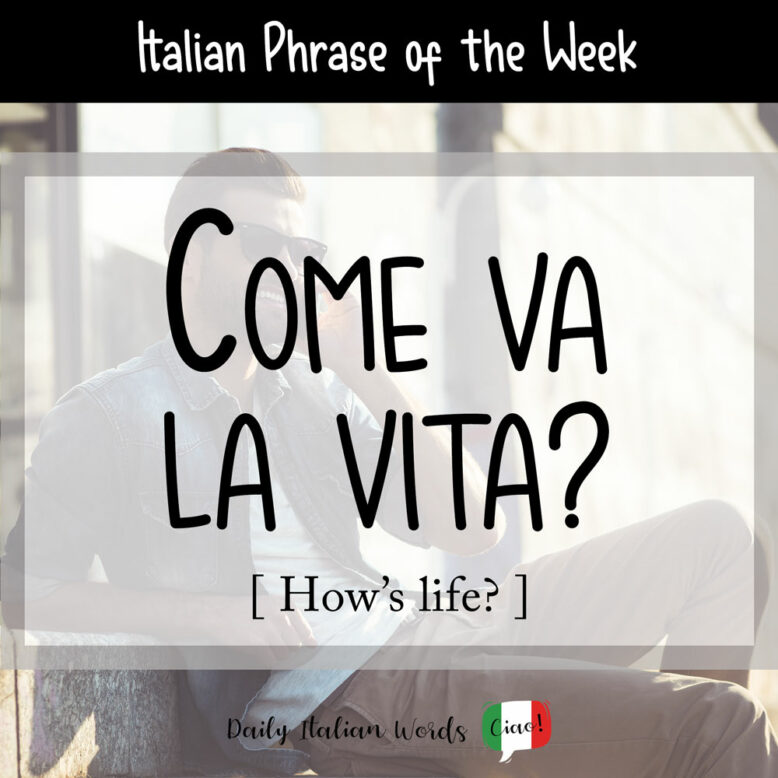When you see someone you know, it’s only natural to ask how they are doing. One way you can do this in colloquial Italian is by asking the question Come va la vita? which literally means “How’s life?“
Come va la vita?
How’s life?

Come is the word for “how” in Italian, whereas va is the third-person singular of the verb andare meaning “to go“. For this reason, the literal translation of come va is actually “how it goes” or “how does it go“. You can actually use these two words on their own as an informal greeting that equates to the English “How’s it going?“
Come va? – Bene, grazie.
How’s it going? – Good, thanks.
La vita simply means “the life“. Contrary to English, it is necessary to include the definite article in Italian, which in this case is the feminine singular la (the). Come va vita, without the definite article, will grind on the ears of any native Italian!
Another possible way of rewording this question is to add the indirect object pronoun ti (meaning “to you“) in front of va. Doing so makes the question a little more emphatic, as you are specifying whose life you’re asking about.
Come ti va la vita?
How’s (your) life?

If you want to inquire about a person’s life as something, be it their profession or marital status, simply add the preposition da (from/as) after vita.
Come va la vita da single?
What’s single life like? / How is life as a single person?
Another way of asking the same question is with the phrase Come ti butta? This is very informal, and often heard among young people. Butta is the second-person singular form of the verb buttare (to throw).
Ciao bello, come ti butta?
Hey mate, how’s it going?
A final way of asking how someone is doing is by replacing la vita with le cose (lit. the things). Since cose is plural, you’ll need to use the third-person plural of the verb andare, which is vanno. You can also include the preposition con (with) and ask something more specific as in the following example.
Allora Pietro, come vanno le cose con Maria?
So Pietro, how are things with Maria?

Heather Broster is a graduate with honours in linguistics from the University of Western Ontario. She is an aspiring polyglot, proficient in English and Italian, as well as Japanese, Welsh, and French to varying degrees of fluency. Originally from Toronto, Heather has resided in various countries, notably Italy for a period of six years. Her primary focus lies in the fields of language acquisition, education, and bilingual instruction.


